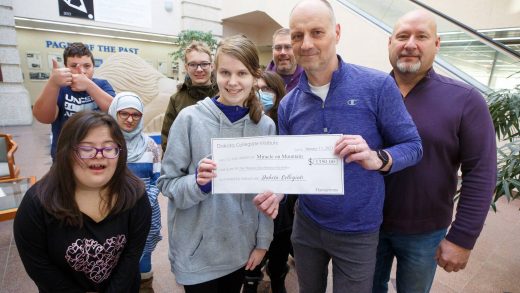:format(webp)/https://www.thestar.com/content/dam/thestar/entertainment/stage/2023/04/14/theatre-etiquette-do-you-sing-along-at-musicals-are-we-becoming-ruder-and-what-to-do-about-drunk-patrons-toronto-ushers-weigh-in/theatre_audience.jpg)
Pat, a Toronto theatre front-of-house manager and usher, has confiscated knives, been pushed in the chest by a drunken patron and once had to tell a father that his two-year-old couldn’t walk on the theatre stage during intermission.
In the business for more than 20 years, Pat (not their real name) isn’t surprised at the recent incident at the Palace Theatre in Manchester, England, in which two audience members caused a mini riot and were ejected by police after attempting to sing along to the song “I Will Always Love You” during the climactic moments of the musical “The Bodyguard.”
“Since the pandemic, on both sides of the pond, we’re living in a sort of alcohol crisis,” said Pat. “It’s often middle-aged women who are probably under a lot of stress, and when they come for these nights out, they drink and drink and drink [before the show]. We have had to call ambulances for people who have got themselves too drunk at a show. This isn’t a party or a wedding.”
As someone who sees roughly 200 shows a year, I’ve never witnessed anything that extreme, although I was once repeatedly told to “Sssssuck it!” by a drunken patron I tried to shhh at Second City (I got reseated during intermission) and recently gave sharp “Can you please not sing along?” looks to my seatmate at the musical “Hamilton”; he had obviously memorized every line of the show by watching it on Disney Plus.
“You don’t see this happening at most plays,” said John Karastamatis, director of sales and marketing at Mirvish Productions.
“It’s usually reserved for musicals that infuse very well-known pop songs in them, like “The Bodyguard.” What we call jukebox musicals. And people, especially if they’ve had something to drink before coming to the show, lose all inhibitions — they become like teenagers.”
Karastamatis, who regularly sees theatre in London’s West End, said the culture is very different there. Inebriated patrons are more tolerated and, unlike in Toronto, bars in theatres are open up to an hour-and-a-half before curtain.
Mirvish ushers have ejected people who are obviously intoxicated, and employees have sometimes had to call cabs for them. All bartenders go through the Smart Serve program.
Karastamatis has noticed a difference in audience behaviour since the lockdowns eased.
“People were isolated for so long and weren’t used to being in social situations,” he said. “At first they felt fear because they weren’t sure if things were safe. Then they just let all their inhibitions go.”
Pat has also noticed a change in audience behaviour.
“There’s a lack of respect for other people in line-ups, they push through, don’t respect ticket takers. Some of them don’t even realize you have to show a ticket to get in. I had one person ask why someone in a wheelchair got to go ahead of them, and I told them, ‘Because that young lady has no arms and legs.’”
And then there’s the sing-along crowd.
When I saw “Beautiful: The Carole King Musical” on Broadway back in 2014, I remember seeing signs instructing people not to sing along to the lyrics. At “The Bodyguard” in Manchester, ushers walk up and down the aisles with placards telling people the same thing. It obviously hasn’t worked.
One way some producers have been able to satisfy audience’s cravings to turn the theatre into an enormous karaoke bar is to end the shows with a big medley — a so-called Megamix. The recent “Joseph and the Amazing Technicolor Dreamcoat” tour in Toronto used that, and wannabe Broadway singers got to belt out the songs with the cast and record themselves doing it on their phones.
Aislinn Rose believes theatres could go even further and designate certain performances as sing-along shows.
“I think the isolation and closing of theatres during the pandemic got us to ask really important questions,” said Rose, artistic director of Toronto’s not-for-profit Theatre Centre.
“Why do we gather together? How are we honouring the choice audiences have made to come and spend their time with us? What are we offering them? I feel like post-lockdown, people are looking for opportunities to address loneliness and feel a part of something.”
Rose points to the enduring success of screenings of “The Rocky Horror Picture Show,” in which fans can dress up as characters, shout out lines and even get up on the stage to interact with a piece of art they love.
“I’m not advocating for every performance to look like that, but there’s an opportunity to build an incredibly loyal, live following of people who want to engage with live performance. I think we should find a way to support that.”
Rose has a point. In the same way that musicians rouse live audiences by pointing the mic out into the crowd and encouraging people to chime in on a hit song’s chorus, for instance, some shows could open up opportunities for audiences to deliver more than mere polite applause.
At last year’s 20th anniversary revival of Trey Anthony’s hit play “Da Kink In My Hair,” some audience members routinely spoke back to the characters, enhancing the play’s effectiveness. But I remember that happening during the play’s first performances in 2002, and it harkens back to the call-and-response dynamic in African music and culture.
That’s not the same as drunkenly singing along to a Whitney Houston song off-key.
One argument I heard right after the Manchester incident is that younger audiences might not know how to behave in theatres.
Rose recalls a recent student performance at the Theatre Centre of “The First Métis Man of Odessa” in which the audience didn’t engage with the show.
“I felt that maybe they had been warned to behave and not move in their seats, and so they stifled all their responses,” said Rose. “If that’s one of your first experiences of theatre, what’s the likelihood of you wanting to go to the theatre as an adult?”
Ironically, Mirvish Productions programmed sing-along performances for their production of the Queen jukebox musical “We Will Rock You” way back in 2008-2009. It didn’t catch on.
“We printed out lyric sheets and everything,” said Karastamatis. “But very few people sang along.”
Times have changed. TikTok didn’t exist, and selfies weren’t as ubiquitous back then. We weren’t coming out of two years of lockdown and isolation, either, unfamiliar with how to properly interact with people. Those performances might work better today.
Then again, why would you want to pay a lot of money to hear yourself sing? Part of the reason we go to live theatre is to see professionals do it better than any of us could.
“Please do not say the lines along with the actors,” said Pat, the usher. “And if you don’t have an Equity card, please do not sing.”
JOIN THE CONVERSATION
does not endorse these opinions.
:format(webp)/https://www.thestar.com/content/dam/thestar/entertainment/stage/2023/04/14/theatre-etiquette-do-you-sing-along-at-musicals-are-we-becoming-ruder-and-what-to-do-about-drunk-patrons-toronto-ushers-weigh-in/we_will_rock_you.jpg)
:format(webp)/https://www.thestar.com/content/dam/thestar/entertainment/stage/2023/04/14/theatre-etiquette-do-you-sing-along-at-musicals-are-we-becoming-ruder-and-what-to-do-about-drunk-patrons-toronto-ushers-weigh-in/joseph_and_the_amazing_technicolour_dreamcoat_mirvish.jpg)

